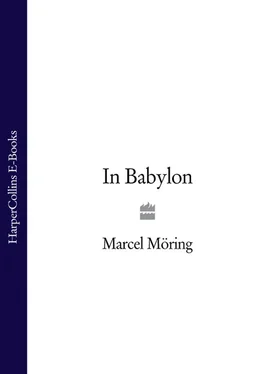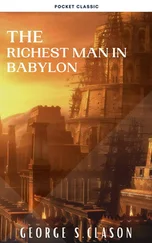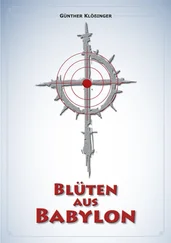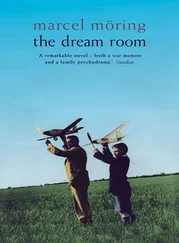That’s what he always said, Uncle Chaim: ‘I wish you could have seen it.’
Magnus saw other things. One day when he arrived at Uncle Chaim’s house he found a bare patch with smouldering stumps of charred wood where the house had been. The clockmaker was nowhere in sight. Magnus walked among the half-burnt pieces of wood, through the ankle-deep layer of damp ash, but found nothing to remind him of the little house. The bench was gone, the table, the shaky wooden bed with the old books … He picked up a stick and poked around in the blackened mess. Just as he was about to leave, he saw something lying in the scorched coppice, under an oak. It was Chaim’s instrument kit, the chest he used to carry on his back when he travelled about the country repairing clocks in remote villages and towns. It had been cast aside, landed in the bushes, and been forgotten. Magnus slung the chest onto his back and set out on his journey.
‘Cossacks,’ said Uncle Chaim, when I asked him once what had happened. ‘Beware of Cossacks, my boy.’
‘There are no more Cossacks,’ I said. ‘Not here.’
‘There are always Cossacks.’
Here was America, where we were already living, the land where Uncle Chaim thought that people lit their lamps with a dollar bill and nobody ate potatoes.
‘Cossacks and potatoes,’ said Uncle Chaim. And he sang, to confirm his loathing for potatoes:
Zuntik – bulbes ,
Montik – bulbes ,
Dinstik un mitvokh – bulbes ,
Donershtik un fraytik – bulbes ,
Shabes in a novene :
– a bulbe-kugele !
Zuntik – vayter bulbes .
Sunday, potatoes. Monday, potatoes. Tuesday and Wednesday, potatoes. Thursday and Friday, potatoes. But on Shabbat, a special treat: potato pudding! Sunday, more potatoes.
‘The food alone should have been reason enough for me to leave that country,’ Uncle Chaim once said. I had reminded him that this would have made him an eligible candidate for the Hollander Top Ten List of Terrible Reasons to Make Drastic Decisions.
‘Pah!’ he said. ‘Don’t compare me to your father, who left Europe because he didn’t want to wear a tie. Or Magnus, who left because he was looking for a wife without a moustache.’
That was what Magnus had said, that all the women in their region had moustaches. ‘Moustaches and hairy legs.’ He had shivered at the thought. Uncle Chaim had looked at him sideways, his left eyebrow lowered. ‘Hairy legs? When did you see a leg?’ Magnus, inhabitant of the spiritual realm for nearly three centuries now, had blushed like a young girl. ‘ Nu , Magnus, Nephew. Where in all those parts did you ever see a leg?’ Magnus had mumbled something about moustaches and that he had certainly seen them before and that you could only assume … His uncle’s eyebrow remained firmly lowered and it was a long time before he looked away. Finally he turned to me and shrugged.
But neither hairy legs, nor upper lips, were the reason for Magnus’s departure. It was the last Cossack raid, when Uncle Chaim’s house was burned to the ground. There, among the stumps of wood and lumps of charred straw, like rotting teeth in a blackened mouth, he had tightened his belt, knotted his puttees, and left.
The year was 1648.
Magnus Levi, as he was still called at the time, reached, after more than twenty-one years of travelling, the easternmost part of the Lowlands. And there he stayed. Not because he was tired, which he was, or sick of travelling, which he also was, but because he arrived in a town on Market Day. He wandered among the stalls looking at blushing apples, pears as big as a man’s fist, cabbages like cannon balls and bulky rolls of worsted. He could smell contentment in the air and he felt something settling inside him, going slowly round and round, the way dogs do when they have found a place where they want to lie down. Magnus tried to resist this unfamiliar feeling, but it was strong, almost overwhelming. He jumped when a cloth merchant called out to him.
‘What’re you selling, friend?’
He could vaguely make out what the man asked, because the dialect in which he spoke sounded much like the Plattdeutsch he had picked up along the way.
‘ Uhren .’
‘Clocks?’
Magnus nodded.
The man beckoned him to come closer and then gestured to him that he wished to see what was in the wooden chest. Magnus placed the chest on the merchant’s stall and opened it. Hanging among his neatly arranged tools was the little pendulum clock he had made. The man pursed his lips and nodded admiringly.
‘ Schön ,’ he said. He looked back at Magnus, his head slightly tilted, and asked, ‘ Deutsche? ’
‘ Deutsche? ’ Magnus shook his head. ‘ Weiter östlich. Polen .’
‘ Pol …’
Once again Magnus shook his head. ‘ Da gewohnt. Nicht Polak .’
The merchant shrugged his shoulders and pointed to the pendulum clock. ‘ Wieviel? ’
Magnus named his price and the man on the other side of the stall began busily converting. Again he pursed his lips.
Meanwhile a small group of curious onlookers had gathered around them. People asked the merchant where the traveller had come from and the merchant, who suddenly felt like a true cosmopolitan, told them the story. Just as Magnus was taking the pendulum clock out of the chest so that they could see it better, the cloud of spectators parted. A lady and her companion walked through the space they had made. Magnus, who hadn’t noticed a thing, was busy letting the clock chime. The melodious cooing of the rods and the first four lines of the song Friede always used to sing rose up in the clear spring air. He had worked for months to get the eleven copper rods just the right length that they would produce the proper tones, and before that he had slaved many, many months to build a mechanism that would allow the tiny hammers to hit the rods at just the right tempo, and in sequence. He stared dreamily at the little clock. He didn’t notice that anything had changed until he saw the merchant give a deep nod. At first he grinned, taking the nod as a sign of appreciation and admiration, but when it remained silent and everyone appeared to have shifted their gaze, he looked sideways. Standing next to him was a young woman in a dress of midnight-blue. A black crocheted shawl was draped across her shoulders. She was in the company of a servant girl in a white lace cap.
‘What song is that?’
She had dark eyes, the colour of polished, gleaming walnut, and curly black hair, tied back in a ponytail.
He stammered out something that even he didn’t understand.
‘ Deutsche? ’ she asked.
The merchant explained to her where the clockmaker had come from and then Magnus told her that he had been on the road for twenty years now and had travelled through Poland and Bohemia and Moravia repairing clocks and in one big city had even built a timepiece for the mayor.
When he had finished speaking, the young woman asked how much he wanted for the pendulum clock. Magnus looked at the timepiece. The sloping sides were like the curve of a woman’s hip, the wood was the colour of … He named a price that was barely half what he had named earlier.
‘What?’ cried the merchant. ‘You told me …’
Magnus, who realized he had let himself get carried away and was about to be laughed at, picked up the pendulum clock and tucked it back into his wooden travelling case. He smiled unhappily, shrugged his shoulders, and said, in even clumsier German (if that were possible), something that was meant to explain his peculiar behaviour. The young woman leaned towards her maidservant and whispered something in her ear. Then she gave Magnus a nod and asked the merchant to measure off two yards of white linen.
Читать дальше












